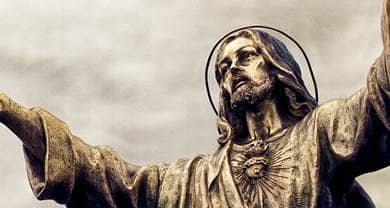- Trending:
- Pope Leo Xiv
- |
- Israel
- |
- Trump
- |
- Social Justice
- |
- Peace
- |
- Love

RELIGION LIBRARY
Lutheran
Exploration and Conquest
Germany did not unify as a modern nation state until 1870, and so was not an early European colonial power. It did, however, try to catch up quickly. In 1884, the Chancellor of the German Empire, Otto von Bismarck, convened a conference in Berlin to coordinate the efforts of European powers colonizing Africa (the so-called "scramble for Africa"). Although there was language at the conference about humanitarian efforts, the reason for the conference was to reduce friction and inefficiency between Germany and its rivals. Germany became the third largest colonial power in Africa.
In 1883, Heinrich Vogelsang, a merchant from Bremen, purchased a small plot of land in modern-day Namibia from a local chief of the Nama, Joseph Fredericks. He expanded his territory rapidly, and in 1884 he persuaded Bismarck to declare a protectorate and to send German soldiers to enforce German rule. Vogelsang died in 1886, but in 1908 a railway worker clearing tracks found a small diamond. Millions of carats of diamonds were extracted over the next several decades, until the mine was depleted in the 1950s. Namibia is the one country outside Europe where Lutherans form the majority of the population.
German colonies included Cameroon, German East Africa, German Southwest Africa, Togo, German New Guinea, and Samoa. They are party to all the advantages and disadvantages of the European colonial enterprise. While Lutheran ministers did build schools and hospitals in addition to preaching the gospel, German colonies were built primarily as a means to extract wealth from Africa for the benefit of the German empire, and the conditions of the African workers were often harsh.
Lutherans also were part of the westward expansion in North America. Denmark founded a colony in the West Indies in the 18th century. Hans Jacob Ottesen Stoud, a Lutheran minister, served there from 1740 to 1749. He supplemented his small salary as a minister by buying three cotton plantations. In 1850 Moritz Brauninger heard Wilhelm Loehe preach in Neuendettelsau, Germany about taking the gospel to the whole world. He moved to Wartburg Seminary in Iowa to train for mission work among the native Americans. Brauninger and Jakob Schmidt set out from the St. Louis River into Montana and Wyoming to work among the Crow, Cheyenne, and Arapahoe. Brauninger's work proceeded with help from fur traders, the U.S. military, and Indian agents. His mission could not be called a success-he died mysteriously, disappearing from the Powder River Mission Station on July 23, 1860. He had converted three young Native Americans. Two died as teenagers; it is not known what became of the third. The Iowa Synod ended its mission work in 1867.










